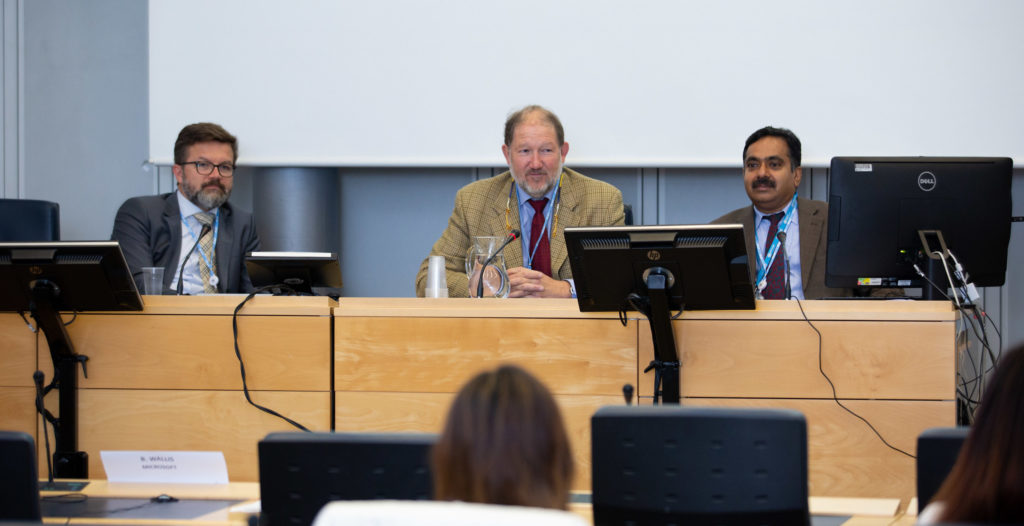Protecting the world’s plant resources from pests
IPPC and UNICC joined forces to present a session on its most recent successes with a web development project to protect plant trade.
“The International Year of Plant Health [in 2020] highlights the importance of plant health to enhance food security, protect the environment and biodiversity and boost economic development,” FAO Deputy Director-General Maria Helena Semedo said.
Today, up to 40 percent of global food crops are lost annually due to plant pests. In terms of economic value, plant diseases alone cost the global economy around US$220 billion annually and invasive insects around US$70 billion.
The International Plant Protection Convention (IPPC) and the United Nations International Computing Centre (UNICC) have delivered an innovative solution for developing countries to ensure plant protection in their international trade. Electronic phyto-sanitary certificates, in lieu of paper certificates, ensure safe standards in the arrival and clearance of plants across national boundaries. Trade suffers when ePhyto certificates do not use harmonized e-business standards. IPPC and UNICC have developed and are operating a centralized hub to facilitate the exchange of certificates and a Generic ePhyto National System (GeNS) web-based system for countries without the infrastructure to produce, send and receive certificates.
Sri Lanka, along with Ghana and Morocco, is an early adopter for implementing the GeNS system for expected efficiencies of exportation and importation of plants and plant products to increase trade benefits. Sri Lankan mangoes are a case in point. Mangoes enter the European market commonly in the ports of the Netherlands. Before departing Sri Lanka, the National Plant Protection Organization (NPPO) carries out a set of treatments to ensure no contamination of the fruit with any pest that can affect the biosecurity of the Netherlands and/or other destination countries. The NPPO must issue a phytosanitary certificate — and paper-based certificates are time-consuming and subject to loss and human error or fraud, impacting often significantly the time to market.
With the GeNS electronic system, the Sri Lankan NPPO can issue an ePhyto quickly and efficiently – in a matter of seconds. An import customs officer can review the ePhyto certificate and request modifications ahead of the product reaching the port. When the product arrives, the correct phytosanitary certificate is ready and customs need only inspect the mangoes. ePhytos are exchanged among NPPOS and can be verified against the system, eliminating the threat of fraud certificates being used.
As a vision for 2025 and beyond, ICT can act as a driver for development – as seen in the 2030 Agenda for Sustainable Development, with the great potential to accelerate progress and to develop knowledge societies, bridging digital divides with innovative technology.
ICTs are identified as targets in the SDG goals for education, gender equality, infrastructure and in the implementation goal as a cross cutting tool to be utilized for the achievement of all of the SDGs.
IPPC and UNICC will continue to partner with crosscutting innovation labs as well as technology providers who are already delivering innovative cost-efficient UN shared systems, as well as cloud solutions, AI, BI, IoT, Big Data, block chain technologies, virtual reality, GIS systems, ID harmonisation and the like.
Speakers/Panelists
- Oliver Neff, Client Account Manager, UNICC
- Venkat Venkateswaran, Chief App Delivery, UNICC
- Craig Fedcock, IPPC Advisor at International Plant Protection Secretariat/FAO-IPPC
Session Link and webinar recording at: https://www.itu.int/net4/wsis/forum/2019/Agenda/ViewSession/210#
World summit on the information society (WSIS)
The World Summit on the Information Society (WSIS) is a unique two-phase United Nations (UN) summit that was initiated in order to create an evolving multi- stakeholder platform aimed at addressing the issues raised by information and communication technologies (ICTs) through a structured and inclusive approach at the national, regional and international levels. The goal of WSIS is to achieve a common vision, desire and commitment to build a people-centric, inclusive and development-oriented Information Society where everyone can create, access, utilize and share information.

